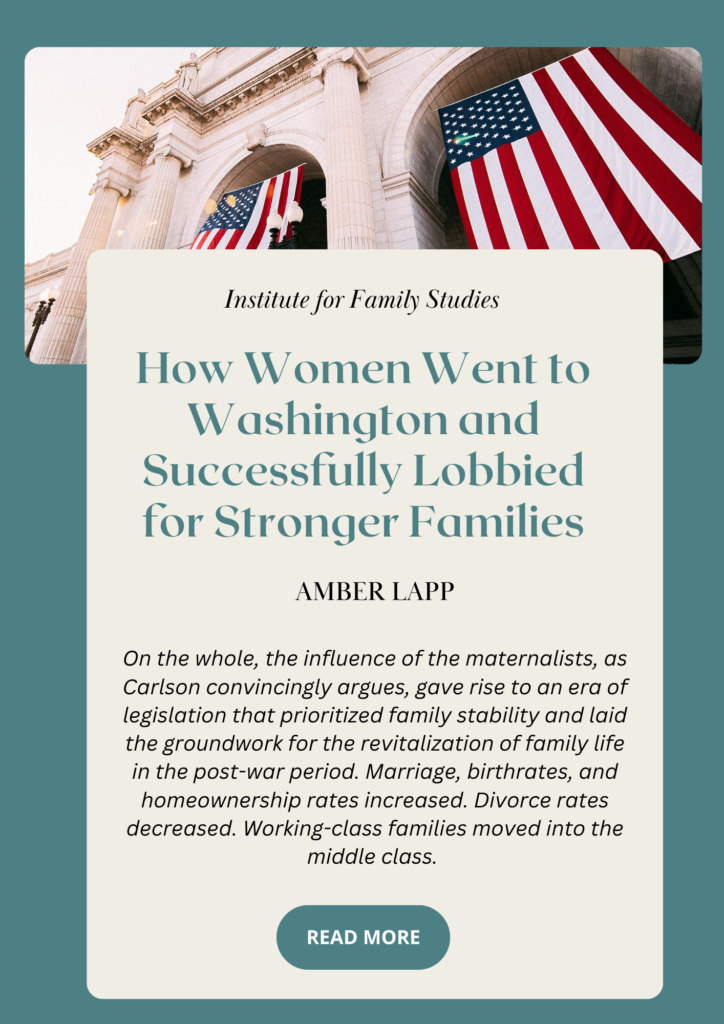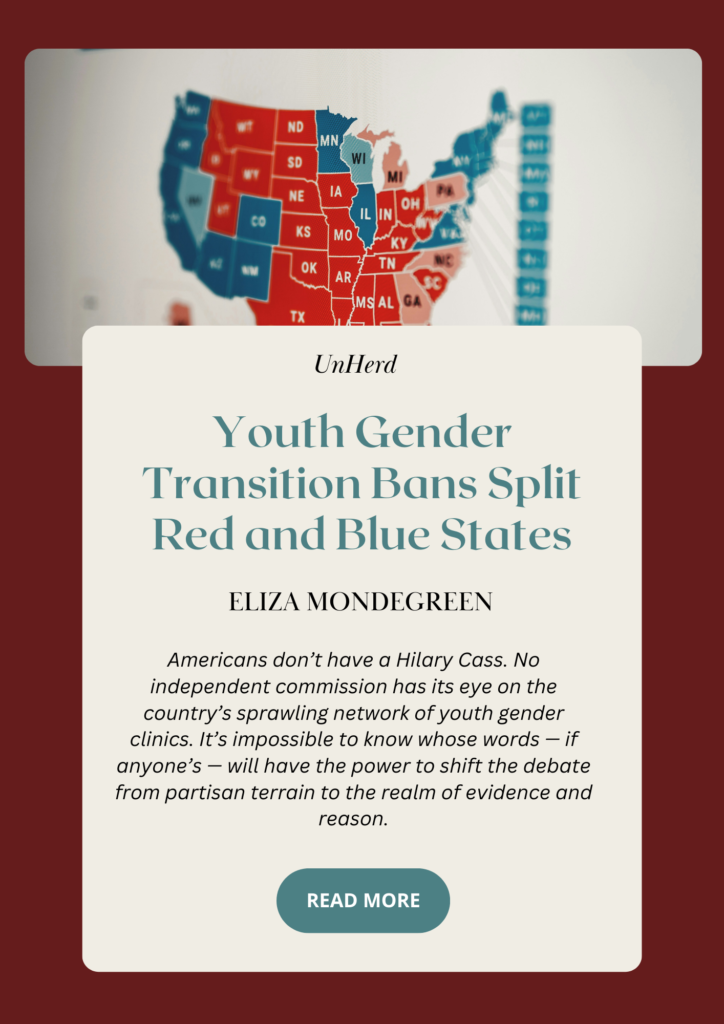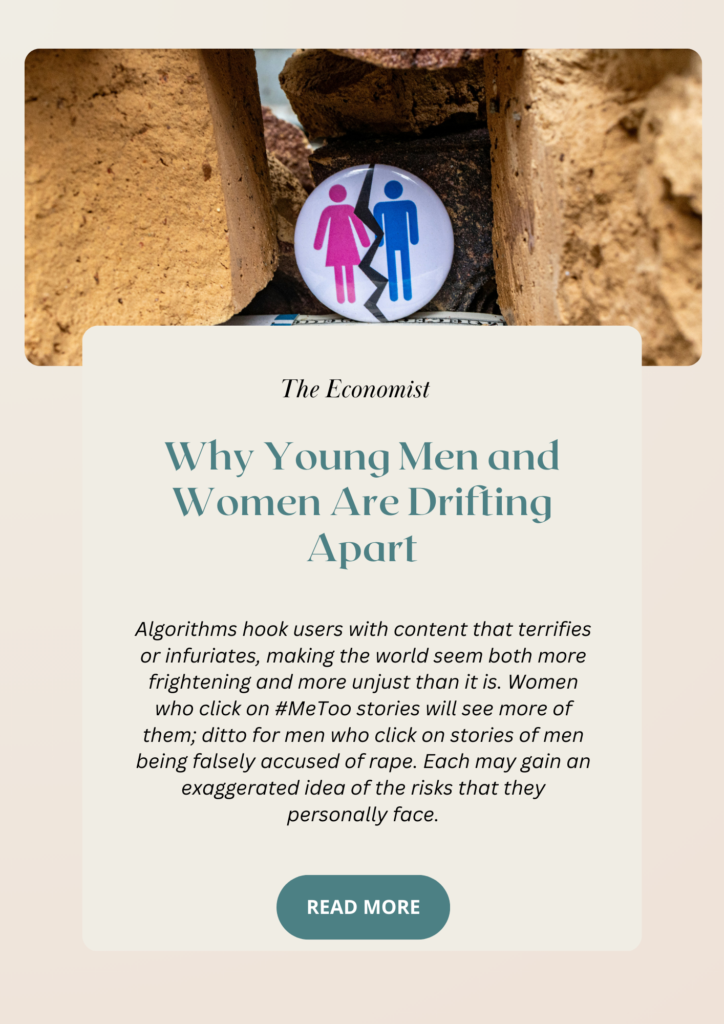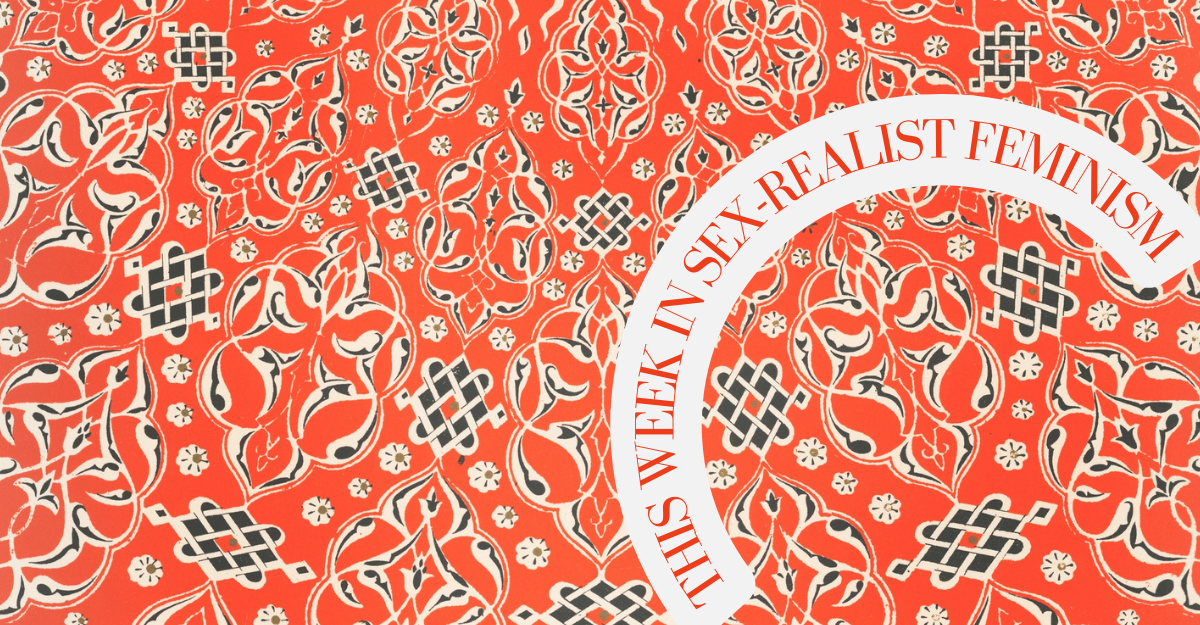Welcome to the weekly Fairer Disputations round-up: your one-stop shop for the best in sex-realist feminism. This week: Amber Lapp on the maternalists, Eliza Mondegreen on the partisan split on youth gender transition, the growing divide between the sexes, problems with IVF, the false work-home dichotomy, what Associate Editor Rose Elvidge is reading—and more!
First, Amber Lapp provides a brief history of the maternalist movement of the 1930s-1950s—and argues that we desperately need a new maternalism to sew seeds of “a new social revival.”

Next, Featured Author Eliza Mondegreen on how the partisan gap on youth gender transition in the United States is increasingly out of touch with the rest of the world.

Finally, a piece exploring the growing, worldwide divide between the sexes, and some of the factors working to exacerbate it. (Note: this piece is paywalled.)

More Great Reads & Listens:
- IVF Isn’t Pro-Life or Pro-Women. The Cruz-Britt Bill Won’t Change That. Natalie Dodson, The Hill
- The Virtue of Motherhood, Helen Roy and Louise Perry, Maiden Mother Matriarch.
- Beyond the False Work vs. Home Dichotomy, Regina Bethencourt and Helen Roy, Girlboss Interrupted.
- The Loneliness Curve, Christina Caron, The New York Times
What I’m Reading: Rose Elvidge

This past week I read a paper that the feminist theory course at Oxford assigns to its undergraduates: Silja Samerksi’s “Pregnancy, Personhood, and the Making of the Fetus” in The Oxford Handbook of Feminist Theory. It is a remarkable piece of philosophical disingenuity. One of Samerksi’s central claims is that pregnancy is, in her words, partly “generated by medical experts” to convince women that they are carrying an individual human being. For example, she states “genetic test results seduce women into taking a biological phantom as a concrete reality.” This seduction is in the service of a “patriarchal construction” of pregnancy that “prohibits the possibility of a woman-centered perspective on pregnancy,” she says, quoting another “theorist” in the field. It is hard to believe that this got published, let alone assigned as a key text for understanding reproduction. Perhaps I shouldn’t be surprised. Rejecting our embodiedness as women seems par for the course in academic feminism—which is why we need a sex-realist feminism.



